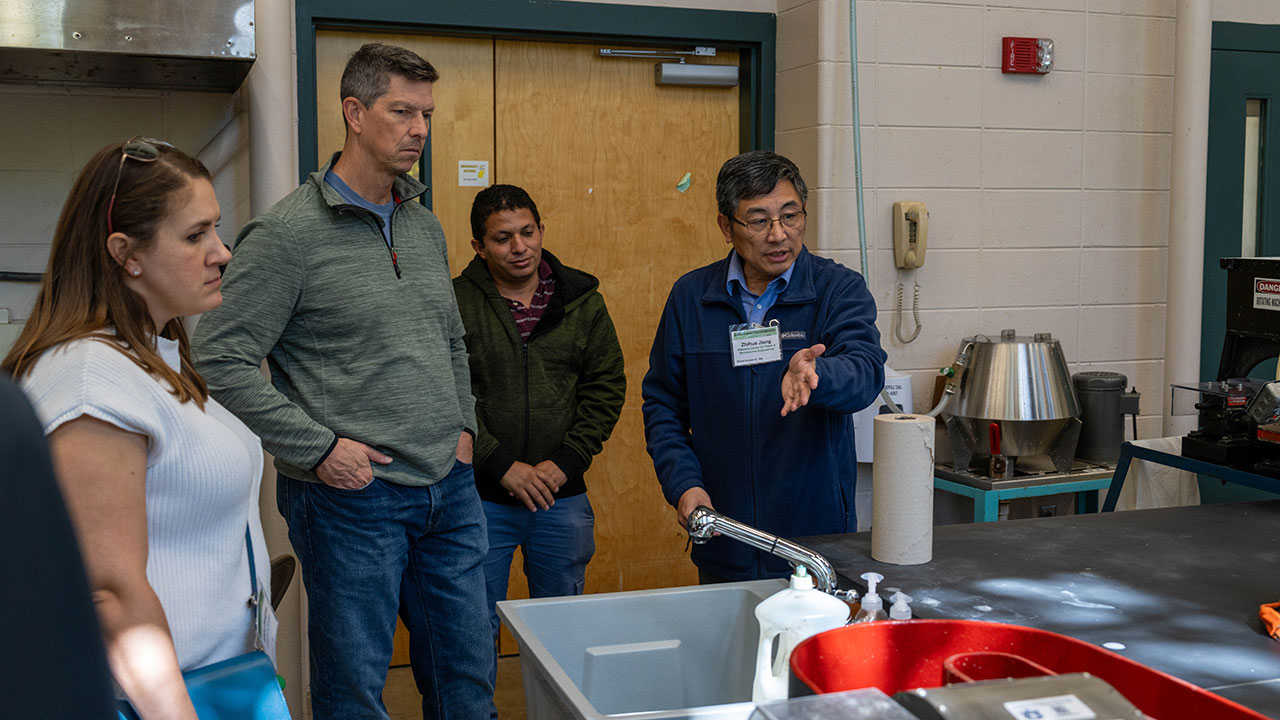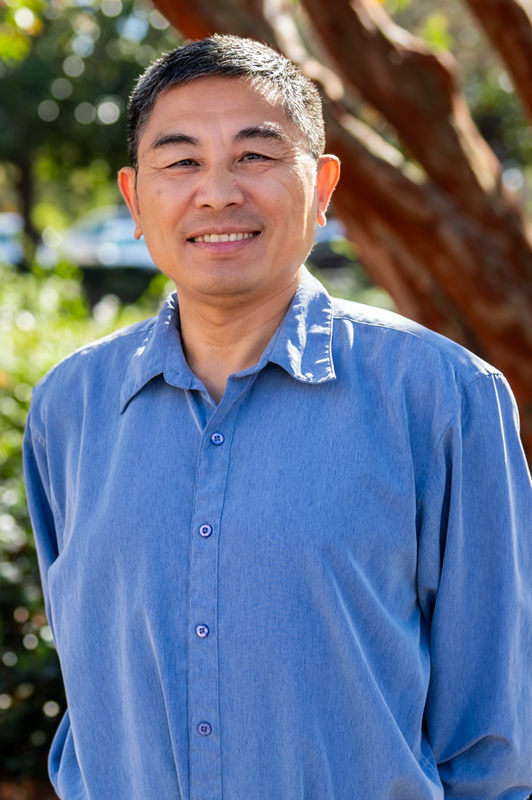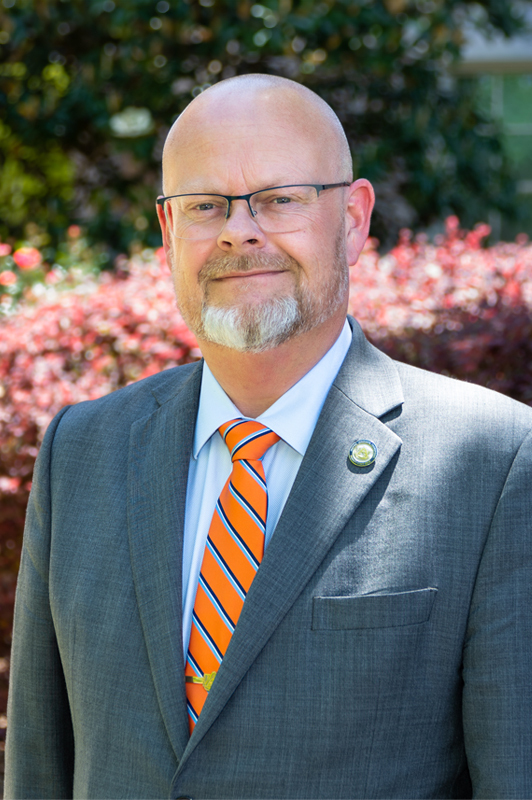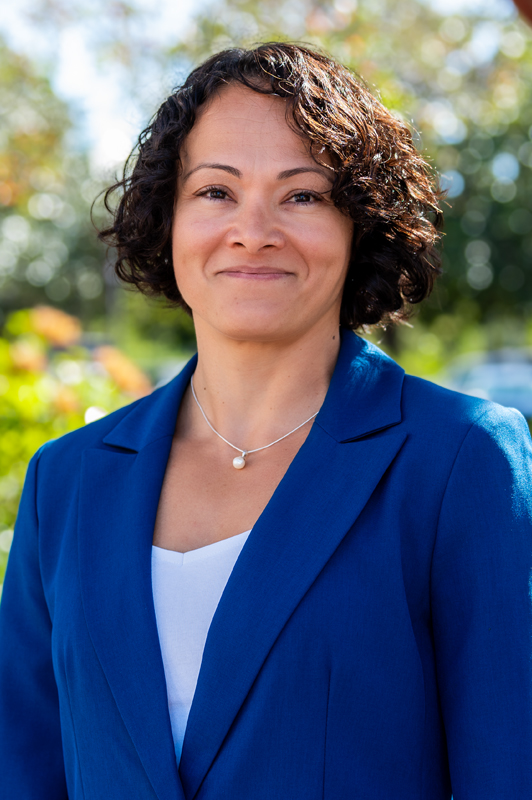Auburn Pulp and Paper Foundation Conference offers opportunities for industry engagement
Published: Nov 1, 2024 3:15 PM
By Joe McAdory
Hudson Pope seemed destined for a career in the pulp and paper industry. After all, he grew up in a southern Arkansas paper mill town with industry giant Georgia-Pacific operating chemical and plywood plants nearby.
“I was strong in math and science, and manufacturing is often the career destination for people who grow up in paper mill towns,” Pope said. “This meant studying engineering.”
For Pope, that meant Auburn’s pulp and paper program in the Department of Chemical Engineering, where he enrolled as a freshman in 1993. Thirty-one years later, he is senior vice president for manufacturing at Atlanta-based Georgia-Pacific and president of the Auburn Pulp and Paper Foundation (APPF).

Pope and nearly 150 pulp and paper industry executives and personnel — many with Auburn engineering educations — gathered on campus Oct. 21-22 for the annual APPF Conference. The 42-member foundation supports Auburn students interested in careers in the pulp, paper and bioresource industry by providing scholarships — including $278,000 in grants for 2023-24, encourages students through mentorship and networking opportunities and eventually employ Auburn students, giving priority to those enrolled in the pulp and paper program.
“The Foundation has long been the backbone of our program,” said Zhihua Jiang, director of the Alabama Center for Paper and Bioresource Engineering, which empowers the university’s pulp and paper program. “I wish to express my sincere appreciation to the entire APPF team for their leadership, dedication, hard work and continued support, which have made the remarkable growth of our pulp and paper program possible.”
Mario Eden, dean of engineering, echoed Jiang’s sentiment.
“The Auburn Pulp and Paper Foundation plays a critical role in fostering student development and career connections,” he said. “By providing essential support and resources, the foundation significantly enhances the educational and research opportunities available through the Alabama Center for Paper and Bioresource Engineering. This collaboration not only advances the field of pulp and paper engineering, but also ensures that our students are well-prepared to meet the industry’s evolving challenges.”
Department of Chemical Engineering Chair Selen Cremaschi said hosting APPF members on campus allows the university to foster deeper relationships and provides firsthand insight into the program’s groundbreaking research.

“Our pulp and paper program remains one of the nation’s best due to our unwavering commitment to innovation, hands-on training and industry partnerships,” she said. “This collaboration ensures that our students are well-prepared to lead in an evolving sector.”
For two days, industry professionals from a multiple companies met with students, toured the facilities and enjoyed technical sessions — presented by the Gulf Coast Technical Association of the Pulp and Paper Industry — led by Jonathan Schaefer, manufacturing data analyst and International Paper, Jim Gavigan, found and president and Industrial Insight, Inc., and Elliott Bell, CEO at Sino Consulting Group.
With 95 undergraduate and 10 graduate students involved in the pulp and paper program, an important aspect of the conference involved student/industry engagement.
“This conference featured an industry showcase with recruiters representing companies within our discipline,” Jiang said. “It is a tremendous opportunity for students, who often get excited about the opportunity to meet with potential future employers. Young talent is one of the most important components for a company business model and we work hard to make sure that we provide prepared young talent for industry.”
Pope, who acknowledged a pulp and paper workforce shortage, believes the industry is getting job-ready candidates when it hires Auburn graduates.
“You're getting someone who has industry experience,” he said. “They're likely to have already completed a co-op program with one of the foundation manufacturers or suppliers. They're not coming out asking questions like, ‘What's a specialty chemical?’ or ‘What's machine clothing?’ They already have the basics from a scientific standpoint. They already know the ins and outs of pulp and paper manufacturing, wood chemistry and characteristics of fiber and that translates into quality products within industry.”
From tiny Crossett, Arkansas, to Auburn University to leadership at Georgia-Pacific and now serving in leadership at the APPF, Pope’s Auburn experience has come full circle.
“There are a lot of people that I work with today who came through the same program at Auburn,” he said, likening the APPF and pulp and paper program at Auburn University to a sustainable mill, grinding fresh talent, building them into leaders, then giving back to students again in the future. “You come out of the program with a ton of contacts across the industry, your graduating class, and you know you will remain connected over time and help each other along the way.
“The Auburn community has values that have been resilient – values that were important to me when I was in college and are still important to me today. It's been refreshing to see that those values haven't changed. We have something uniquely special here.”
Auburn University President Chris Roberts said the university provides students with experiences — inside and outside the classroom — to develop their respective disciplines, develop interpersonal skills and networking capabilities.
“To be admitted to Auburn University to be an engineering student, a scholarship student and especially a pulp and paper scholarship student, tells me a lot about you as young people,” Roberts told students at the conference banquet at the Auburn University Hotel and Dixon Conference Center. “Your future is very bright especially if you fully leverage the opportunity through the networks that have been created through the years of people who care deeply about the industry, each other, the alma mater and the students that will come after them. The pulp and paper organization has devoted a huge amount of time and energy into creating this network and community.
“We want those exceptional experiences to begin here at Auburn, in a wholesome environment where you can push forward. We have an amazing and beautiful opportunity for cataclysmic engagement within the community. We can translate the knowledge and technologies we develop to our constituents. Through this, we serve more Alabama residents on this campus than any other university.”
APPF also recognized a handful of students at the conference banquet: Tanner Stogner, chemical engineering (Ted Crane Memorial Leadership Endowed Scholarship), Tyra Babbs, chemical engineering (Neal McDevitt Scholar Award), Mitchell Koser, biosystems engineering (John Smyth Scholar Award), Sophia Halstead, chemical engineering (Jim Gresham Scholar Award) and Jacob Green, mechanical engineering (Terry Cantrell Scholar Award).
The foundation board also voted to add awards, the Charles Sewell Scholar Award and Chris Spraggins Scholar Award, whose support and generosity have been instrumental to the continuation of the legacy that Ted Crane began.
Media Contact: , jem0040@auburn.edu, 334.844.3447
APPF conference guests had the opportunity to tour the Alabama Center for Paper and Bioresource Engineering laboratory, led by Center Director Zhihua Jiang, right.




